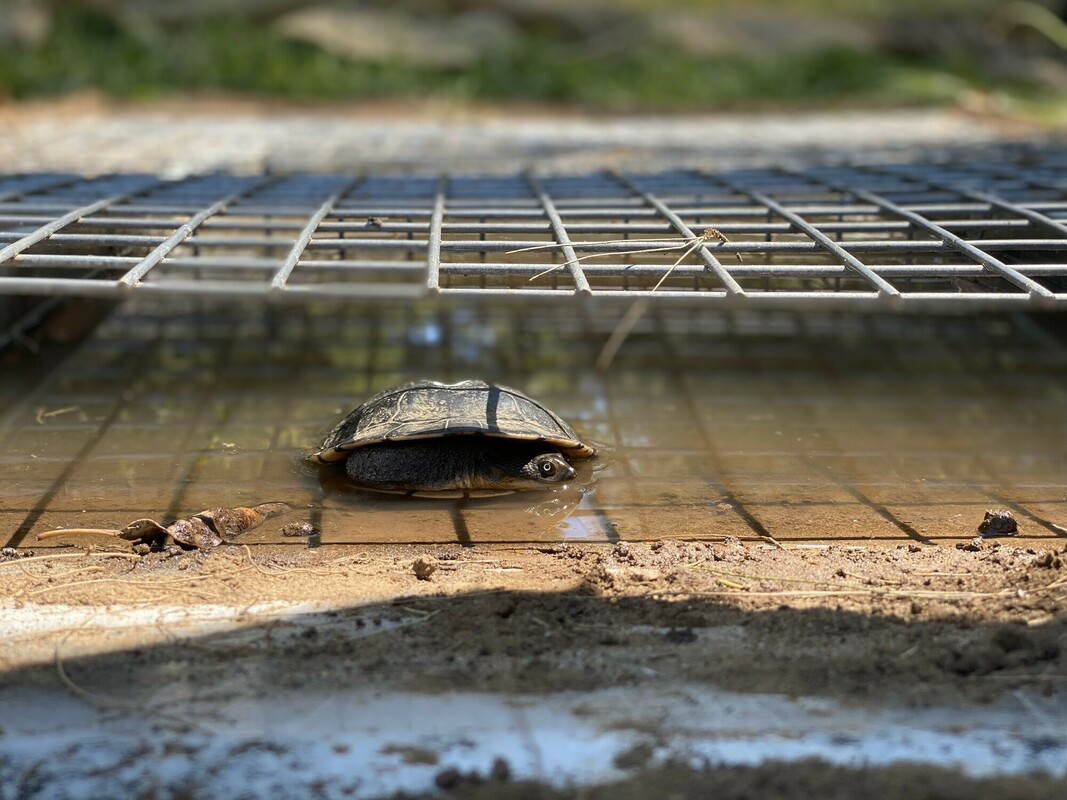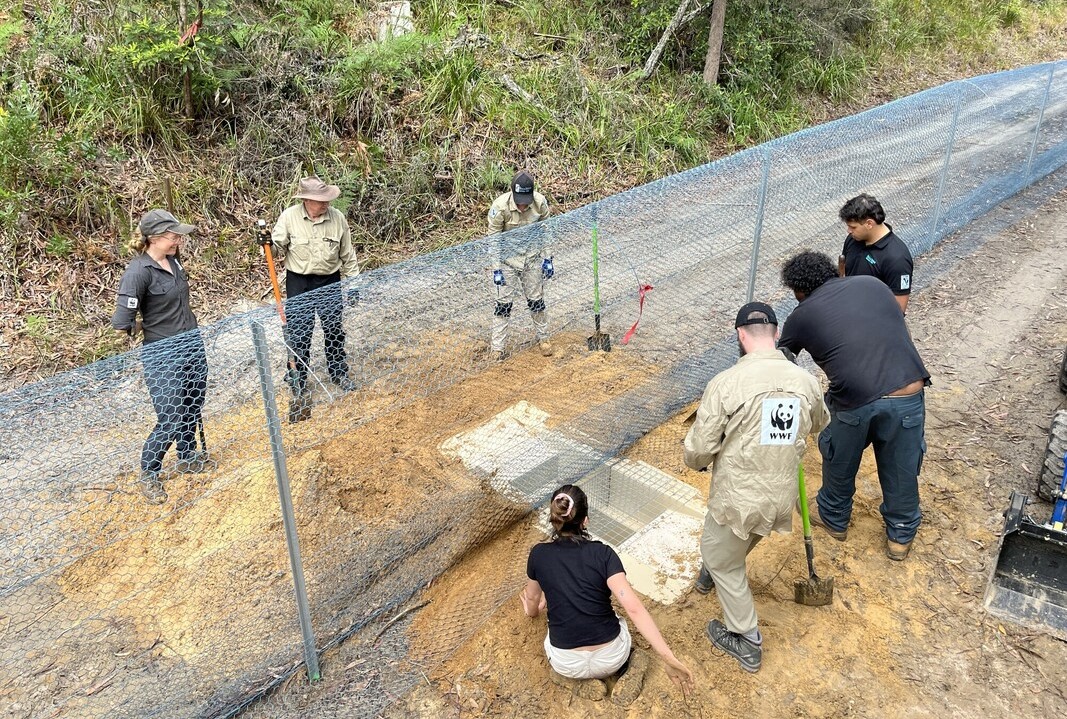
Nine ‘turtle tunnels’ have been built underneath the 82-hectare fence that encloses the botanic gardens in Booderee National Park on the NSW South Coast. Photo: WWF-Australia.
A project team reintroducing eastern quolls to a sanctuary on the NSW South Coast earlier this year faced a big problem when they realised the four-kilometre fence required to protect the species could be a potential killer.
The new 80-hectare sanctuary at the Booderee National Park’s Botanic Gardens, now home to 19 quolls, required a 1.8-metre-high fence with a curved umbrella top, to protect the species from feral predators like foxes.
But the fence sat on an ancient migratory route for eastern long-necked turtles, who travel between water sources and nesting sites at Lake McKenzie and Lake Windermere.
Booderee National Park Country and Conservation Manager Nick Dexter said they had long known the turtles used the network of swamps and lakes at Booderee, feeding and fattening in the swamps and migrating to the permanent lakes when the swamps dry out.
Without a solution, the turtles would be unable to complete their migration and at risk of overheating and dying.
“We had to design something that would allow turtles to migrate across the fence line without allowing foxes to get in or quolls to get out,” said Mr Brewster.
Eventually the team settled on an innovative solution: a series of nine water-filled tunnels built underneath the fence to keep out feral predators but allow the turtles to travel between waterholes.

The two-metre-long, 70-centimetre-deep swim-through system was sunk into the ground underneath the fence to keep out feral predators but allow the turtles to travel between waterholes. Photo: WWF-Australia.
The waterholes comprise a two-metre-long, 70-centimetre-deep swim-through system, resembling a bathtub, sunk into the ground underneath the fence with an underwater mesh opening installed at the midway point to prevent larger animals from moving through the system.
The design underwent a series of trials with eastern long-necked turtles near Kangaroo Valley.
After watching a succession of turtles successfully (albeit slowly) navigate the tunnels, the team knew they’d cracked it and the tunnels were ready to be put into use at Booderee National Park.
In the nine months since, monitoring has shown turtles are successfully transiting under the fence to complete their seasonal migration with no evidence of foxes attempting to enter the tunnels.
But there was an, at times, entertaining, side benefit to the project.
Sensor cameras have captured bandicoots, cockatoos, kookaburras and one opportunistic echidna investigating the watery entrance to the tunnels.
“Some animals seem to be using them as makeshift waterholes. We’ve seen gang-gang cockatoos stopping for a drink and one little echidna waddling around the fence line and enjoying a bath every few hundred metres,” said World Wildlife Fund – Australia’s rewilding program manager Rob Brewster.
While the echidna’s antics provided some laughs, it’s the response from eastern long-necked turtles that has conservationists celebrating.
“It was imperative that we maintained access for turtles to these water bodies. Along with regular patrols, we are satisfied with the turtle tunnels as a solution,” Mr Brewster said.
It’s hoped the tunnel design can now be used and modified to mitigate the impact of conservation fences across parts of Australia where freshwater turtle migration occurs.







